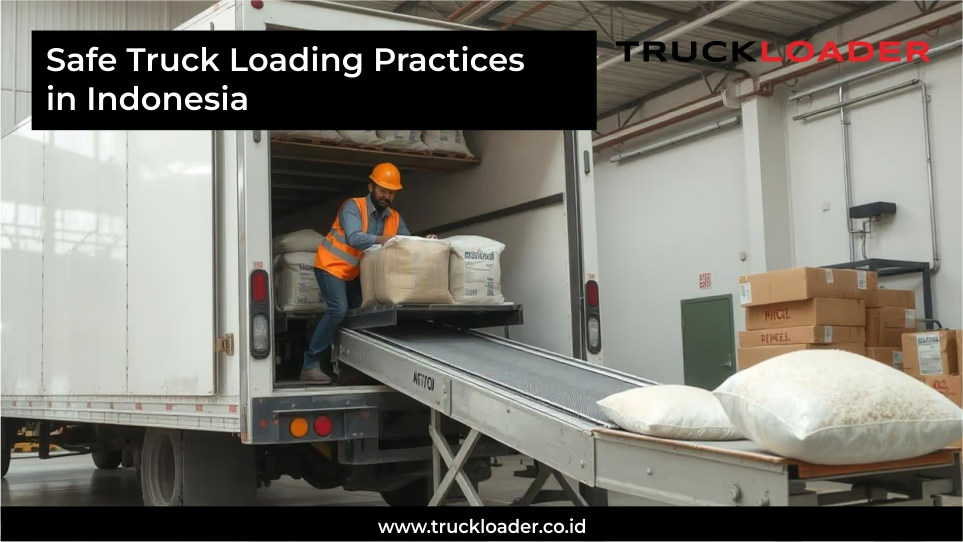Safe Truck Loading Practices in Indonesia

Loading a truck isn’t just about speed — it’s about safety, efficiency, and protecting your goods. In Indonesia, many items like rice sacks, cardboard boxes, and loose freight are still loaded manually. That’s why understanding proper loading techniques is essential to avoid product damage, workplace accidents, and traffic safety violations.
1. Key Priorities When Loading a Truck
Before starting any loading task, always consider:
- Worker and driver safety
- Cargo protection during transit
- Logistic costs and labor efficiency
- Availability of tools and infrastructure
- Maximum productivity at the loading site
2. Tips for Loading Non-Palletized (Loose) Goods
Items like rice sacks, instant noodle boxes, or gallon cartons are often loaded by hand. Here’s how to improve efficiency and safety:
- Use the Right Equipment: Portable conveyor belts (such as from TruckLoader)
- Loading docks or ramps level with the truck bed
- Keep the Truck Area Clean: check the truck floor before loading — make sure it’s dry, clean, and free from debris or sharp objects
3. Tips for Loading Palletized Goods
- Weigh all loads to ensure they don’t exceed the truck’s capacity
- Use pinwheel stacking for better stability
- Ensure even weight distribution across the truck
- Use double-fork forklifts for higher volume loading (if suitable)
4. Securing the Load
Never rely on gravity alone. Combine tools and techniques such as:
- Ratchet belts or cargo straps
- Load bars and corner braces
- Pallet cones or edge protectors
- Stretch wrap or cross-tied rope
5. Tips for Less Than Truckload (LTL) Cargo
- Always palletize partial loads for easy handling
- Use pyramid-shaped cardboard to discourage stacking
- Stack unevenly if needed to prevent unsafe top-loading
Indonesia still relies heavily on manual and loose-loading systems. With proper techniques and equipment like TruckLoader, your loading process can become faster, safer, and more efficient — even for small businesses.